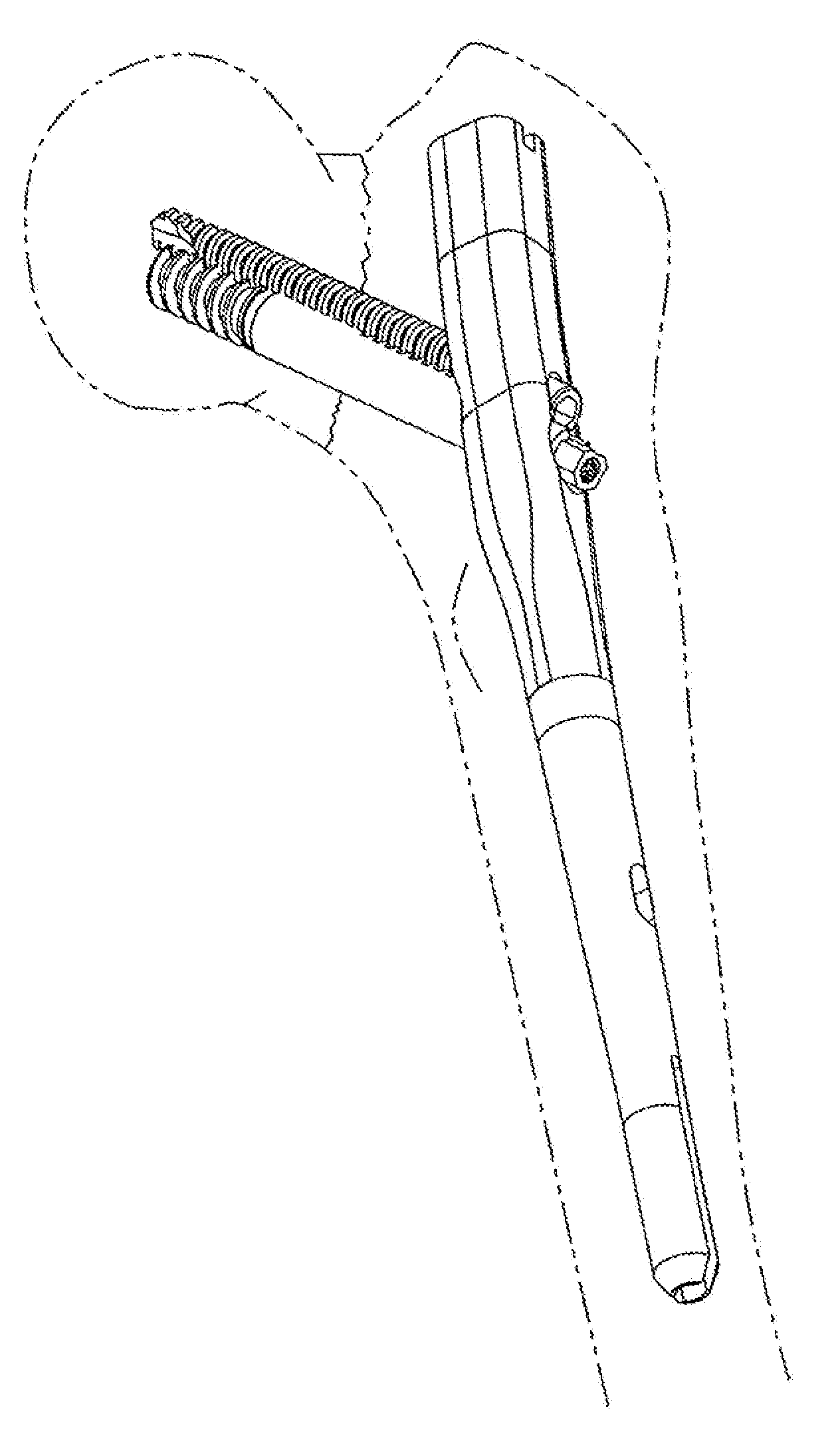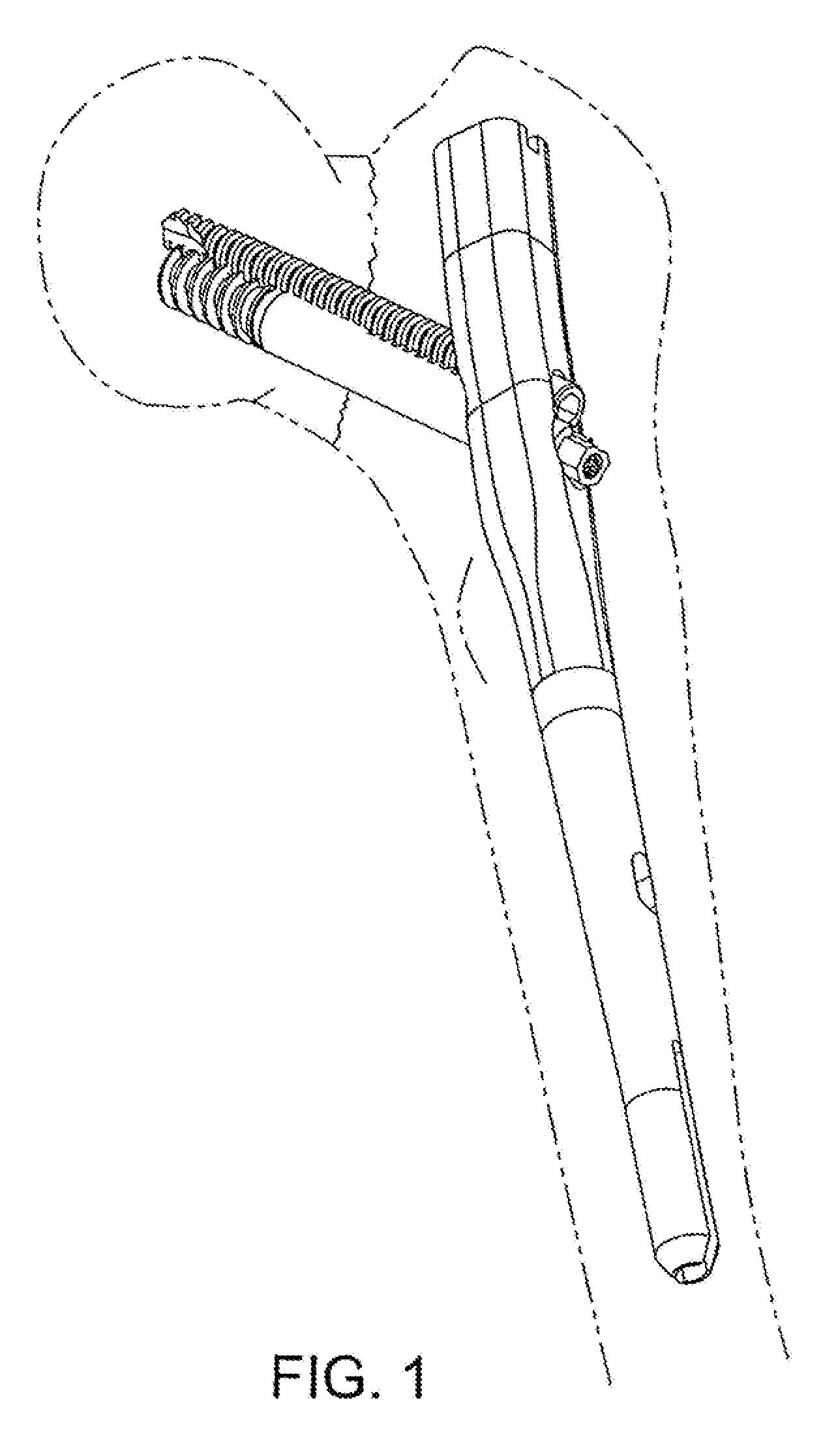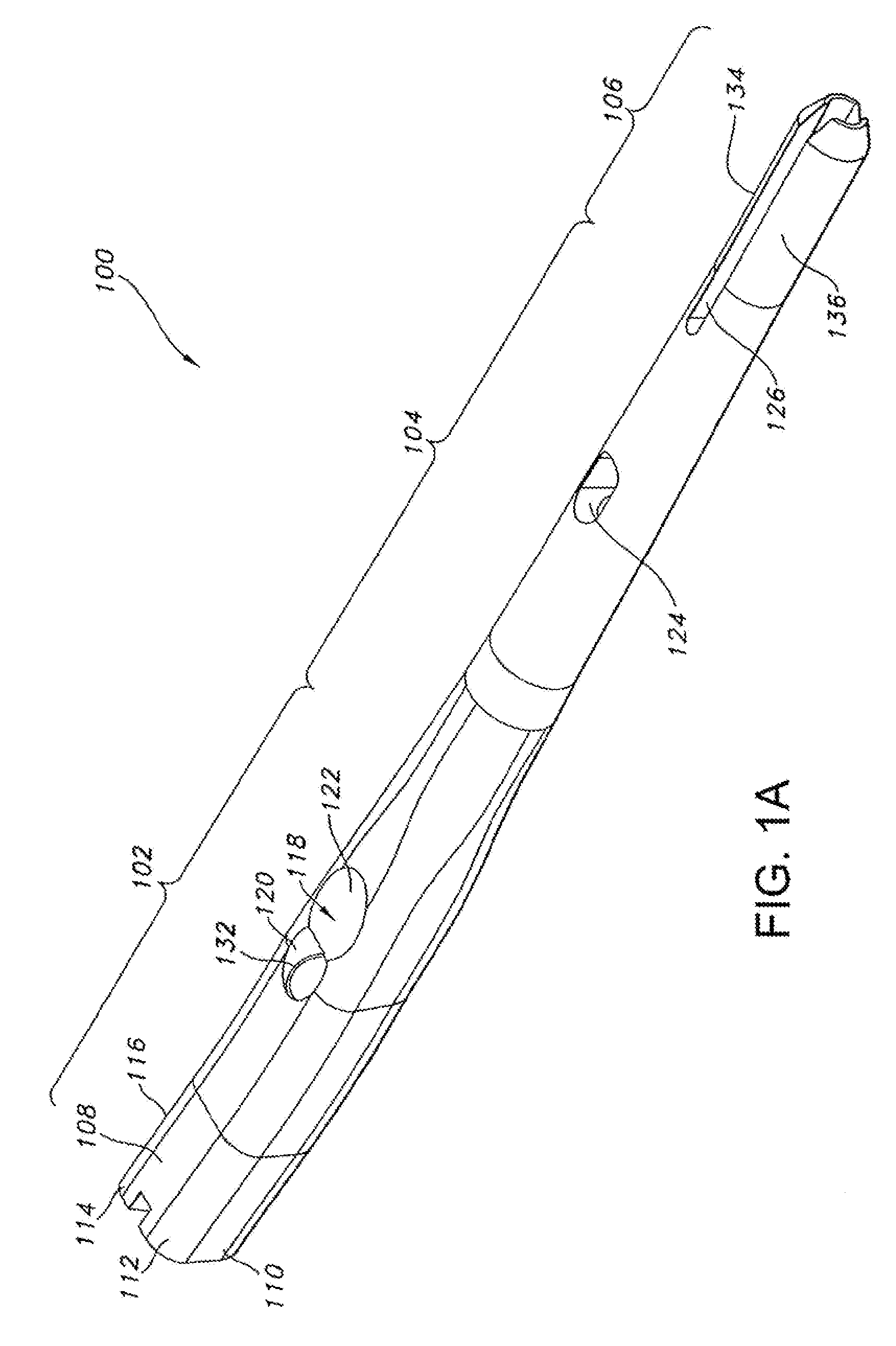Orthopaedic implant and fastener assembly
a technology for orthopaedic implants and screws, which is applied in the field of intramedullary nail or plate and screw assembly, can solve the problems of femoral head compression, screw sliding through the nail, excessive compression of the femoral head, etc., and achieves the effect of reducing the mass in the cross section, increasing the strength and resistance to tension, and adding additional mass in the lateral portions
- Summary
- Abstract
- Description
- Claims
- Application Information
AI Technical Summary
Benefits of technology
Problems solved by technology
Method used
Image
Examples
Embodiment Construction
[0065]Methods, devices and systems according to embodiments of this invention seek to provide improved treatment of femur fractures. FIGS. 1-6 illustrate various views of one embodiment of an intramedullary nail 100 of the present invention. The intramedullary nail 100 has a longitudinal bore 130 throughout to aid in insertion in the bone. The intramedullary nail 100 has a proximal section 102, a transition section 104 and a distal section 106.
[0066]The proximal section 102 of the particular structure shown in FIGS. 1-6 preferably features an anatomically inspired shape that corresponds more accurately to typical cortical bone. One version of such shape is shown in the cross-sectional view of the proximal section 102 in FIG. 6. The particular cross-section of the proximal section 102 shown in FIG. 6 is generally non-circular along at least some portions of its length, and has a lateral side or aspect 108 that is larger than a medial side or aspect 109. The lateral side 108 and media...
PUM
 Login to View More
Login to View More Abstract
Description
Claims
Application Information
 Login to View More
Login to View More - R&D
- Intellectual Property
- Life Sciences
- Materials
- Tech Scout
- Unparalleled Data Quality
- Higher Quality Content
- 60% Fewer Hallucinations
Browse by: Latest US Patents, China's latest patents, Technical Efficacy Thesaurus, Application Domain, Technology Topic, Popular Technical Reports.
© 2025 PatSnap. All rights reserved.Legal|Privacy policy|Modern Slavery Act Transparency Statement|Sitemap|About US| Contact US: help@patsnap.com



